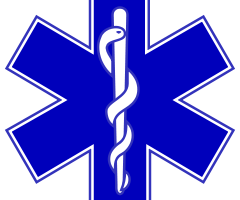Free-market principles are used in many aspects of U.S. business, with the concepts of fair competition and no monopolies paramount, but they aren’t followed when it comes to American health care.
In a recent blog post, Samaritan Ministries, a healthcare sharing nonprofit, asked the question: “Do We Have a Free Medical System?”
The article, penned by Hunter Lewis for the Mises Institute challenges the notion that American health care is driven by free-market principles as some claim. Instead, Lewis describes the system as “crony capitalist” medicine, where powerful special interests join with the government to create “legally mandated monopolies,” ultimately “thwarting free-market competition.”
One healthcare sharing ministry that serves more than 227,000 members disagrees.
“Not only does Samaritan Ministries enable our members to directly share financially in the medical burdens of their brothers and sisters in Christ, also while praying for them and sending notes of encouragement, but Samaritan also provides the tools, knowledge and information so Christians can rethink the status quo of health care,” said Anthony Hopp, vice president of external relations for Samaritan Ministries.
“For decades, many Americans have accepted the state of health care as-is,” adds Hopp, “not realizing there could be a better way or that real transformation could happen with the right commitment to change.”
Frustration with traditionally hidden medical costs and more
Lewis goes on to write that many patients are frustrated that medical prices are kept hidden. He asserts that most patients don’t find out what the charge is until after the service has been delivered. There actually are prices, but they are controlled to make profits for those involved, he said. After delving into topics such as the American Medical Association, Medicare, drug companies and the FDA, Lewis added, “this is not a free market system nor anything remotely close to one.”
Again, healthcare sharing entities such as Samaritan Ministries turn Lewis’ assertions on their heads.
A different approach brings fresh air and relief
Samaritan members approach health care differently from an insurance company, by “bearing one another’s burdens to fulfill the law of Christ” (Galatians 6:2 | ESV) and also by lifting up fellow Christians in prayer and support.
Each month, Samaritan Ministries’ 76,493 member households (248,442 individuals) pray for one another and send financial shares directly to other member families. In this way, Samaritan members share $26 million in medical needs each month through an effective, affordable and God-honoring ministry for Christians.
Many Samaritan members choose direct primary care (DPC) practices, some of which list specific prices for specific procedures and labs right on their websites. This way, self-pay patients, like those who are members of health care sharing ministries, know the prices upfront.
Bringing human compassion back into the doctor-patient relationship
It’s not just about cost savings.
Even more significant, medical professionals who lead direct primary care practices can offer their patients lower prices because they are not bound by costly insurance requirements.
These doctors can also spend more time with each patient and take on fewer patients annually, because they are not forced to accept an unrealistic number of patients to cover overhead.



You must be logged in to post a comment.